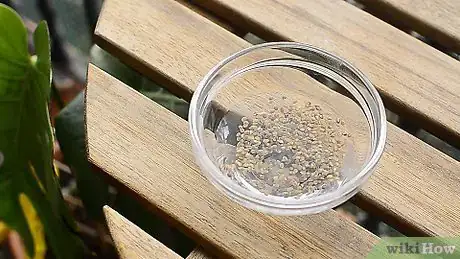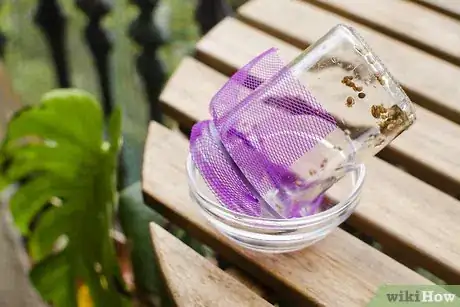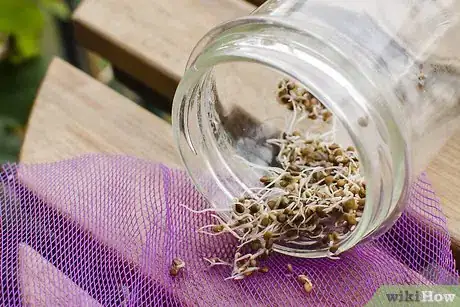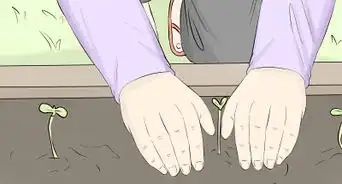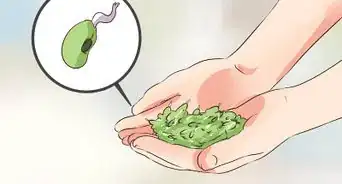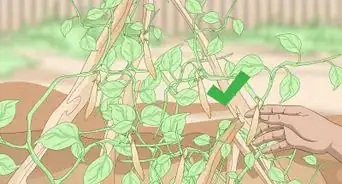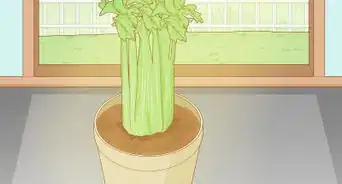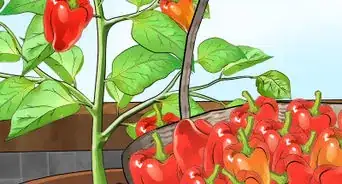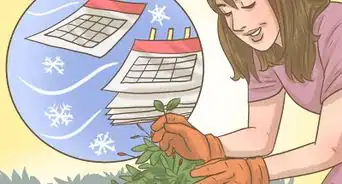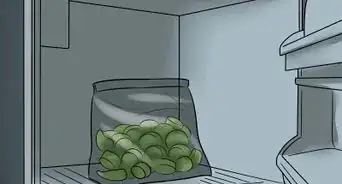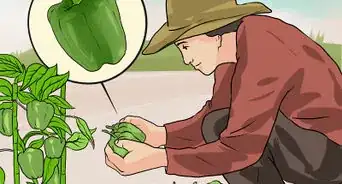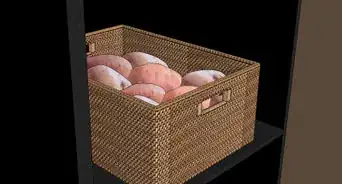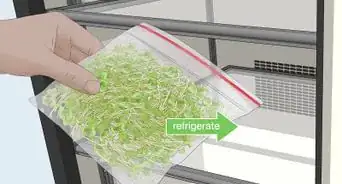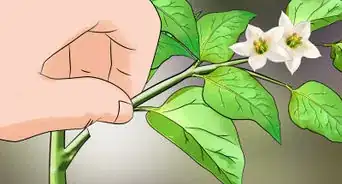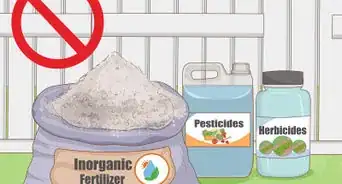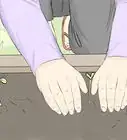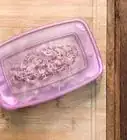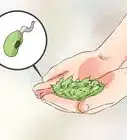This article was co-authored by wikiHow Staff. Our trained team of editors and researchers validate articles for accuracy and comprehensiveness. wikiHow's Content Management Team carefully monitors the work from our editorial staff to ensure that each article is backed by trusted research and meets our high quality standards.
The wikiHow Video Team also followed the article's instructions and verified that they work.
This article has been viewed 171,550 times.
Learn more...
Making your own sprouts requires very little special equipment, no soil and no sunlight. The sprouting process takes only a few days, which greatly increases vitamin and mineral availability. An example: sprouting soybeans produces a 500 to 600 percent increase in vitamin C content, and a 300 percent increase in vitamin A content. The riboflavin and niacin content -- both B vitamins -- also increases by about 370 and 200 percent, respectively.[1]
Steps
-
1Rinse your seeds in lukewarm water. Discard any split or otherwise obviously damaged seeds.
- Guarantee the best sprouting results by purchasing seeds specially labeled for sprouting, which are usually tested to guarantee a good germination rate. At the very least, purchase organic seeds. Many non-organic seeds sold for consumption are specially treated not to sprout.
-
2Place 1 to 2 tbsp. (15-30 mL) of small seeds, or 1/4 to 1/2 cup (60-120 mL) of legumes (beans or lentils) in a quart-size sprouting jar. If you're using a half-gallon jar, use 2 to 4 tbsp. (30-60 mL) of small seeds or 1/2 to 1 cup (120-240 mL) of legumes.Advertisement
-
3Fill the jar with lukewarm water. Set the jar upright and leave the seeds to soak.[2]
- Optional: Add 1 tsp. (5 mL) of citric acid per quart (950 mL) of soak water. Although this isn't strictly necessary, it will help reduce spoilage.
- Soak small seeds for 5 or 6 hours.
- If you're sprouting seeds or beans with a very hard coating, let them soak for as long as 36 hours.
-
4Screw a sprouting lid onto the mouth of the jar, if you haven't done so already.
- Sprouting lids are a hollow ring with a wire- or plastic-mesh insert. When you upend the jar, the water will flow out but the mesh will retain the seeds.[3]
- Sprouting lids come in various sizes. For now, select a mesh size that your unsprouted seeds will not fit through.
-
5Pour the water out of the sprouting jar. Fill the jar with lukewarm water again, swirl the water and seeds together again, then pour the rinse water out.
-
6Prop the jar at an angle, lid facing down. This allows any remaining water to drain out of the jar, and air to circulate freely.
-
7Continue rinsing the seeds at least twice a day.[4]
- Always prop the jar at an angle, lid down, so moisture drains out and air circulates to help prevent spoilage.
- If you live in an arid climate, rinse the seeds 3 times a day. Mung beans also need more frequent rinsing--3 or 4 times a day--no matter the climate.
- As the seeds sprout, switch to a larger-mesh sprouting lid for better water and airflow.
-
8Place the jar in front of a window once the seeds are fully sprouted. This generally takes between 1 and 5 days, depending on the seeds. The sprouts will quickly produce enough chlorophyll to turn green, further enhancing their nutritional value.[5]
- The sprouts are ready to eat once the 2 baby leaves are free of the seed hull. Try to eat your sprouts while the root is still one thin thread; once sub-roots begin to appear, the sprouts are much less palatable.[6]
- Average sprouting/growth times include: sunflower seeds, 1 to 2 days; clover, 4 days; broccoli, 3 days; alfalfa, 1 to 5 days; mung beans, 3 to 4 days.
Community Q&A
-
QuestionHow can I grow them fast?
 DonaganTop AnswererKeep them quite warm (not hot but fairly warm). That should maximize the speed of sprouting. Once they've germinated, sunlight or a "grow light" will help them grow fast.
DonaganTop AnswererKeep them quite warm (not hot but fairly warm). That should maximize the speed of sprouting. Once they've germinated, sunlight or a "grow light" will help them grow fast. -
QuestionCan I sprout them with soaked tissue?
 DonaganTop AnswererContinuously damp paper towels are a good medium to use (one sheet below, one above). They don't need to be soaked, but they do need always to be moist. A good way to do it is to put a paper towel on a plate, dampen the towel, place seeds on it, cover them with a second paper towel, dampen it, then place the whole thing inside a plastic bag, seal it, and keep it warm (room temperature or above).
DonaganTop AnswererContinuously damp paper towels are a good medium to use (one sheet below, one above). They don't need to be soaked, but they do need always to be moist. A good way to do it is to put a paper towel on a plate, dampen the towel, place seeds on it, cover them with a second paper towel, dampen it, then place the whole thing inside a plastic bag, seal it, and keep it warm (room temperature or above). -
QuestionIs it necessary to soak grains in water?
 CaeiiaTop AnswererYes, they need to be moist in order to germinate.
CaeiiaTop AnswererYes, they need to be moist in order to germinate.
Things You'll Need
- Glass jar
- Sprouting seeds
- Citric acid
- Sprouting lids
References
- ↑ https://sproutpeople.org/sprouts/nutrition/science/
- ↑ https://nutritionstripped.com/guide-to-soaking-and-sprouting/
- ↑ https://boulderlocavore.com/sprouting-101-homemade-sprouting-jars-tutorial-diy-mason-jars-giveaway/
- ↑ https://www.culturesforhealth.com/learn/sprouting/how-to-sprout-seeds-jar/
- ↑ https://wholelifenutrition.net/articles/recipes/how-make-broccoli-sprouts
- ↑ https://www.culturesforhealth.com/learn/sprouting/how-to-sprout-seeds-jar/
